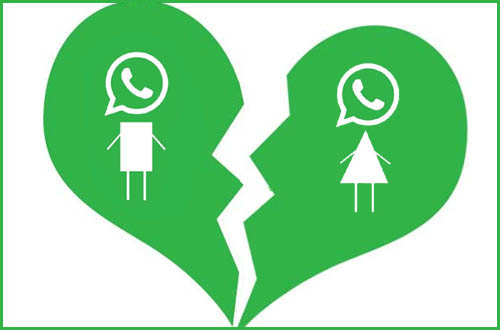Back
WhatsAPP Video Call Divorce: First in Indian Court
- By Elite CIO
 Aug 23, 2019
Aug 23, 2019 9
9
 WhatsAPP Video Call Divorce - First in Indian Court, Nagpur Family case
WhatsAPP Video Call Divorce - First in Indian Court, Nagpur Family case
A Nagpur family court has granted divorce & Rs. 10Lakhs settlement for the wife in the US and husband in India, afterrecording the wife’s consent via a WhatsApp video call.
The husband, 37, a resident of Khamla in Nagpur, worksin Michigan, but was in his home town when the divorce was officiallygranted by mutual consent.
The wife, 35, is studying in Michigan, US, on a studentvisa. Expressing her inability to attend the hearing as she was not permittedto seek long leave from her educational institution, the woman had requestedthat the hearing be conducted via a WhatsApp video call.
After seeking consent from both sides, Nagpur Family CourtJudge Swati Chauhan allowed their separation on the condition that the husbandwould pay the woman a lump-sum one-time alimony of Rs 10 lakh. Thedivorce was finalised on January 14, 2019. The family courthad obtained the wife’s consent via a WhatsApp video call on the directives ofthe court.
The couple had an arranged marriage on August 11, 2013, atSecunderabad, now in Telangana. The husband and wife, both engineers, securedjobs in a US-based automobile company.
However, differences cropped up when the wife stayed withher in-laws in Nagpur for some time after her US visa expired. She returned toMichigan later on a student visa. Over time, their differences deepenedand the husband filed for divorce at the Nagpur Family Court.
The court referred their case to a counsellor asper existing norms but the hearing took place for some time, as both wereabroad. Smita Sarode Singhalkar, the wife’s lawyer, said she then took thelead and arranged a meeting at her office at Khare Town in Nagpur to go for anout of court settlement. The meeting was attended by the husband and his lawyer,while the wife was contacted on WhatsApp video call. The wife’s brotherrepresented her at the negotiation.
While the husband attended the meeting, the wife wasrepresented by her brother. The counsellor interviewed the wifeon the terms of settlement via WhatsApp video calls and also consulted thehusband. Subsequently, both the lawyers informed the court that since both thehusband and wife were already living separately in the US for over a year andthe wife was ready for a one-time settlement, a divorce should be granted.
The court turned the divorce case into a mutual consentpetition before dissolving the marriage. While the Muslim, women across theworld are fighting to ban divorce via Skype and WhatsApp, Indian court grants adivorce to a man in India with the consent of women in the USA
Content Ref.- Prashant Mali's Blog of Cyber Security, CyberLaw, Data Protection Law